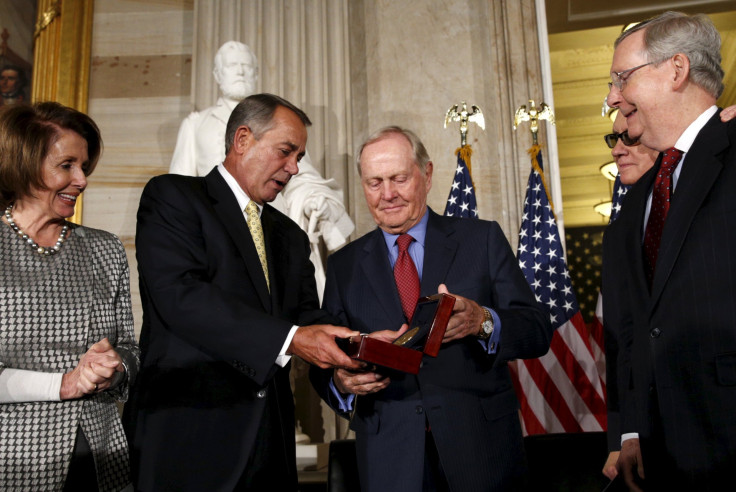Congress Passes A Budget, Now Comes The Hard Part

WASHINGTON -- Congress passed a budget Thursday night and into Friday morning -- only the second time in six years both chambers passed the annual fiscal document -- with a standard amount of drama and maneuvering. Now comes the hard part.
Budgets are visionary documents. They outline priorities and principles. But they don’t actually fund the government. They aren’t binding. And they carry no weight of law. So a lot of work remains for Congress to finish the funding process and avoiding another fiscal crisis in the fall.
But there may have been a sign of hope in the disarray of getting a budget passed. In addition to passing a budget, the House overwhelmingly approved a change in the Medicare and CHIP programs that will end a decade of fiscal fights over funding the program, known as the “doc fix.” House Speaker John Boehner and Minority Leader Nancy Pelosi hammered out a deal -- one for which lawmakers have been clamoring for years. And while the bill still needs to get through the Senate, it sent a strong message.
Bipartisanship can survive in the House. And Boehner isn’t afraid to go to Pelosi even if it means ticking off the most conservative members of his caucus. Now will come the bigger test: Can bipartisan cooperation survive a debt ceiling increase, a transportation funding shortage and the need to fund the government for another year?
Congress has until October to take the budget and turn the bottom lines into actual appropriations bills. The process has often been a difficult one, since the reality of funding need for agencies often runs into a desire from Republicans to see government spending reduced. And appropriations bills can be used to try to force policy riders -- such as when Republicans tried to kill the Affordable Care Act or undo President Barack Obama’s immigration executive orders. Those types of “poison pills” can derail the appropriations process.
For their part, congressional leadership seems optimistic that the fiscal debacles of the past can be avoided for the next fiscal year. “We’ve got a lot of tough issues to deal with here in the Congress,” Boehner said Thursday. “We didn’t get elected to come here and sit on our rear ends. We’ve got work to do.”
Pelosi echoed those sentiments, with the usual caveat that policy riders could spoil the deal. “We understand that on that [Appropriations] committee there really is an attitude of bipartisanship,” Pelosi said. “We see the urgency of the need of the American people.”
But even though the House concluded with a great moment of bipartisan cooperation, there are still signs that problems lie ahead. House Republicans were the ones who ended up the most divided on the budget process. Staunch defense hawks argued Republicans weren’t providing enough funding to the Pentagon, and a special fund -- which critics called a slush fund -- had to be established to offset their concerns. The fiscal conservatives complained that Republicans weren’t doing enough to cut spending or overhaul entitlement problems, as well.
If divisions within the Republican Party remain, it will make continuing the appropriations process more difficult. Conservatives have already proven they're not unafraid to kill bills on the floor. And trying to attach drastic policy riders to legislation would make it impossible to get any Democratic support.
And then there's the basic function of funding the government to two other tasks Congress must undertake -- raising the debt ceiling and finding some way to stop the highway fund from going bankrupt before the end of the summer. But while Boehner might be savoring the victory this week, the taste could quickly be gone before fall.
© Copyright IBTimes 2024. All rights reserved.












